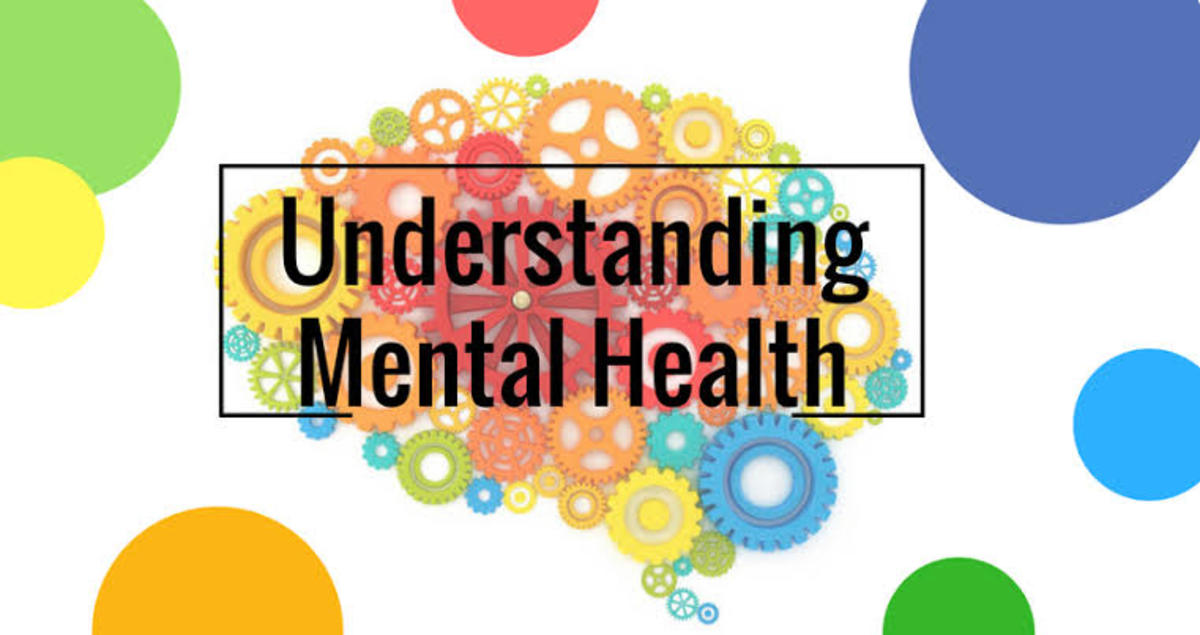Mental Health Awareness within Football
In sports there are many contributing factors to cause psychological distress for athletes, particularly within Football. Football is one of the most viewed and highly invested sports in the world, however away from the passion, excitement and jubilation of the beautiful game, there can be a darker side for many of the individuals involved.
1 in 4 people suffer mental health issues every year. Everybody has their down days and their own struggles; however different people have different ways in coping with these harder times. In some cases, it may just be needing a chat and in others people may require medical attention. Over the last decade, there has been vast progress with how mental health illness is viewed and managed. Although positive steps are being made, there’s still more that can be done moving forward.
It’s vitally important that all athletes suffering from any type of Mental Health issues, no matter how big or small, can feel comfortable to be able to come forward and speak about these concerns. Regardless on a sports team being at a professional, semi pro or amateur level, there should be the correct measures in place to fully support anyone who requires it, even if it’s as simple as regular communication.
Male athletes usually have a masculine stigma preventing them from feeling comfortable talking about their mental health. From conversation with many males who have suffered from some form of mental health, many have not wanted to come forward and be open about it, maybe due to a sense of pride, fear or denial. This can have a detrimental effect on an individual, as they are keeping these feelings bottled up inside, often leading to further negative effects on their wellbeing. Taking that first step has proven to be a huge weight lifted off people’s shoulders, allowing them to begin the processes of improvement and rehabilitation for their mental welfare.
Examples of Mental Health Issues in Football
Robert Enke
Robert Enke was a German international goalkeeper, who notably played for Benfica, Barcelona and Hannover 96. Enke unfortunately suffered from mental health illness, which was noticed at his youth level where he had anxiety. During his time at Hannover 96, he was diagnosed with a bacterial stomach virus, which caused him to miss an extended part of his career, putting his position as Germany’s number one in jeopardy. Despite this Enke was still in contention for the main role heading into the proceeding summers FIFA World Cup competition in 2010. In his personal life, Enke tragically lost his young daughter, who died due to rare heart condition. Sadly, in 2009 Robert Enke tragically took his own life. This is a devastatingly sad story, particularly as at this time Robert Enke may not have received the help that he needed. Enke was a top level professional footballer, at the height of his ability, yet he still suffered from mental distress. This shows that mental health can affect any person. If you ever were interested to learn more about his story, have a read of the book ‘A life too Short: The Tragedy of Robert Enke’.
David Bentley
David Bentley was an outstanding prospect back in 2006, as he came through Arsenals academy, before going on to thrive at Blackburn Rovers. He was putting in consistently strong performances, including a hattrick against Manchester United that put his name on the map. Bentley was ladled the next David Beckham, and hype didn’t get bigger than that within English football back in 2006. He started to get selected for England’s national team and got a big money move to Tottenham Hotspur. With lots of excitement and publicity around his career, the pressure started to build on Bentley, leading to a dip of form. After a run of underwhelming performances, Bentley lost out on England selection and started to regularly get loaned out by Tottenham. Bentley openly admitted that he struggled with the emotional roller-coaster that was football, including the team’s performances and personal scrutiny he would receive. At the age of just 29, once his contract had expired with Tottenham Hotspur, Bentley decided to retire, claiming he’d fallen out of love with football. Since making this big decision, Bentley admitted that he’d much happier in his life, enjoying plenty time with his family. He explained that he had never spoken with anyone regarding his feelings due to a sense of pride. He encourages modern day footballers to always get this needed support.
Danny Rose
In 2018, Danny Rose publicly opened up about his depression that he was suffering from and the contribution that football had had towards it. Rose was playing for Tottenham Hotspur at the time, as well as being an England International, just a month away from the FIFA World Cup 2018. Rose had been suffering from a knee injury, leading to a lengthy absence from the game, along with a number of family complications in his personal life. This became a big story in the media, which can often be a worry for many people having their life publicised, especially with such an important matter like mental health.
I found this all very encouraging from Danny Rose, as his bravery to share such a personal topic will open the door for other players in the future to do the same. It shows that Mental Health awareness is moving in the right direction, as he was able to gain the needed support that others over the years didn’t.
Explanations for Mental Health Issues in Football
Injuries
One of the most common causes of mental health among athletes can be down to sporting injuries. Football especially is a sport where injuries are a natural part of the game, something that every player will experience within their careers, yet can still be a devastating time, especially if it’s a long-term absence. In severe cases, injuries have proven too often to be the downfall of many players careers, preventing a player from preforming to their highest standard or reaching their full potential.
One of the most disheartening things for a player is not being involved, whether it’s missing a match or even not being able to train with their teammates. This can lead to players feeling distanced from the club. As fans we often overlook the individual and simply ponder upon the impact it’s going to have on our team.
In modern day football, there is a very high standard of injury treatments, providing players with impactful rehabilitation and recovery, as well as striving to prevent future injuries occurring. Nonetheless, even though the required physical treatments are in place, it’s doesn’t always mean the players are being provided with the mental support that comes with injuries.
Pressure
No matter what time period within a footballers career, whether it’s at the start, peak or conclusion, they will always have a lot of pressure to be at their best. Football can be a harsh game, as a run of bad performance can lead to scrutiny from fans or the media, and cause players to be dropped, sold or even released.
Often team members can also be a player’s biggest competitor in terms of starting positions, so even on the training ground the pressure to impress can be astronomical.
The pressure can extremely high at academy level, as the young players must always be showing signs of quality and improvement. It can be a harsh reality to be told you’re not good enough and be released, preventing young players from realising their dreams and aspirations of being a professional footballer. This can almost be worse in American sports at college level. Many of these players experience the feeling of superstardom by representing their college at championship levels. These games are often played in front of large attendances and televised nationally. However, if these players aren’t drafted to the pro ranks, then often that dream can be over, and that superstar feeling is just a memory.
Retirement
Another major contributor to mental health issues for athletes is retirement, particularly in the form of depression. Once an athlete’s career is over, it can start to cause many depressive symptoms as they’re no longer competing within something that they’ve committed their lives to. Due to it being one of the most popular sports in the world, football can be one of the hardest to retire from as you can quickly lose that fame, superstardom and wealth. In addition, footballers have relatively short careers and the lack of recognition and attention after retirement can lead to a sense of worthlessness and loss of identity.
Moreover, these difficult retirement decisions can often generally be out of a player’s hands. If a player is too old or generally not playing to a high enough standard, then they will often be sold or dropped by the manager.
Substance Abuse
When footballers are dealing with mental health issues, whether an active or retired player, they often turn to substance abuse as a coping mechanism. This isn’t too common in the modern game anymore; however, this was often a huge downfall within players careers in the past. There was always a high consumption of alcohol for footballers, especially due to the unity and comradery within a team, leading to regular partying and celebration. Though many past players enjoy this, when not conducted appropriately or responsibly, it can have a negative impact on a players performances and mental wellbeing.
Many of the above reasons can often be a cause of substance abuse for players, however as mentioned due to the increased intensity and facilities in the modern game, it ensures that players are at their peak fitness and performance. Though when in a darker place in their lives, this can still be a factor that must be addressed.
Positive Impacts of Football on Mental Health
Playing football is a great coping mechanism for so many people when it comes to containing mental health, particularly stress and depression. It can help individuals enjoy socialisation and increase fitness, allowing them to feel more confident in themselves and a provide a release of endorphins.
Watching football as a fan is a great way of bringing people together, as it enables people to make friends and socialise. Speaking for myself, I find nothing better then meeting up with my mates and watching our local team every weekend. It’s a great chance to have laugh with everyone and support the team.
Conclusion
In the male professional game, it’s not been common for players to announce their mental health issues, especially whilst still actively playing. As aforementioned, this could be down to a sense of pride or even fear. However, this is something that needs to be encouraged more moving forward.
Mental Health awareness has been vastly improving, to a point where it is no longer stigmatised. It is pivotal that these improvements continue to happen, where any athletes facing mental health concerns feel like they can be valued and supported in the right way, allowing them to stay happy within their life and focus on the best performance within their careers.
We here at Boots Off TV encourage anyone suffering from any form of mental health who would like to talk about it to get in contact with us and we’ll be happy to speak with you or help to advise on the proper actions that can be taken, especially as we are currently working in partnerships with Mental Health influencer, Ruby Gebka.








